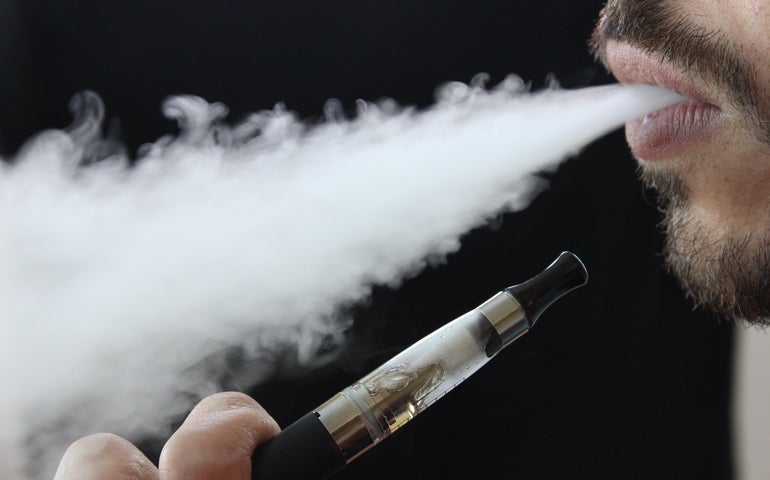The secretary of the U.S. Department of Health and Human Services said Wednesday the federal government is putting policies in place to ban the sale of flavored e-cigarettes.
The secretary, Alex Azar, said on Twitter he will work with President Donald Trump and Dr. Ned Sharpless, the acting U.S. Food and Drug Administration commissioner, to end sales of such smoking products.
“New provisional data show that youth use continues to rise rapidly, and we will not stand idly by,” Azar said.
Tobacco-flavored e-cigarettes aren’t part of the potential ban but will be if data show young users migrating to those products, Azar added, in part because adults may use those products in part to quit use of cigarettes or cigars.
[Related: State health department warns physicians on vaping-connected illnesses]
“We’re seeing an absolute surge in high school and middle school kids using these flavored products,” he said in an online video. “Mint, menthol, fruit flavor, alcohol flavor, bubble gum, we’ve got to stop it.”
The FDA will put a plan together in the coming weeks on the planned ban, The New York Times reported.
Use of e-cigarettes, or vaping, spiked in 2018 among both high school and middle school students, according to a survey released this spring by the FDA and Centers for Disease Control and Prevention. Among high school students, use jumped from 11.7% to 20.8% in just one year, and in middle schools, the rise was 3.3% to 4.9%.
[Related: Vaping policies evolving with rising use]
The rate of students using flavored e-cigarettes climbed to 68%, and those vaping 20 or more days in a year rose to 28%.
A 2017 CDC survey reported that 20.1% of Massachusetts high school students were e-cigarette users.
Bans on flavored tobacco products more broadly have become more common among Massachusetts cities and towns in recent years, despite legal challenges from some retailers. Two-thirds of the state’s population now lives in one of the 160 cities and towns that have passed such measures as of July, according to the Massachusetts Municipal Association.

